Escape to the winery
– February 26, 2024 | Text Alexandra Stilwell
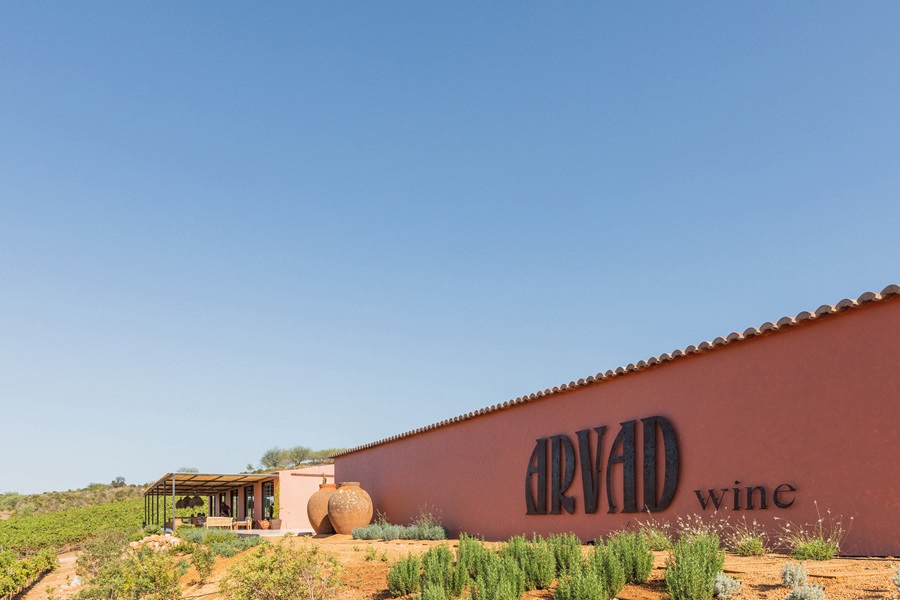
In the north of Portugal, wine is often associated with sorrowful Fado and the dark taverns where it is sung. But down in the Algarve, Pedro Garcia de Matos, owner and founder of the Arvad winery, sees wine as full of joy and life. “Wine is not Fado. It’s Bossa Nova!”
This positive outlook on wine and life led the Lisbon-based businessman to buy an exquisite plot of land on the left bank of the Arade River.
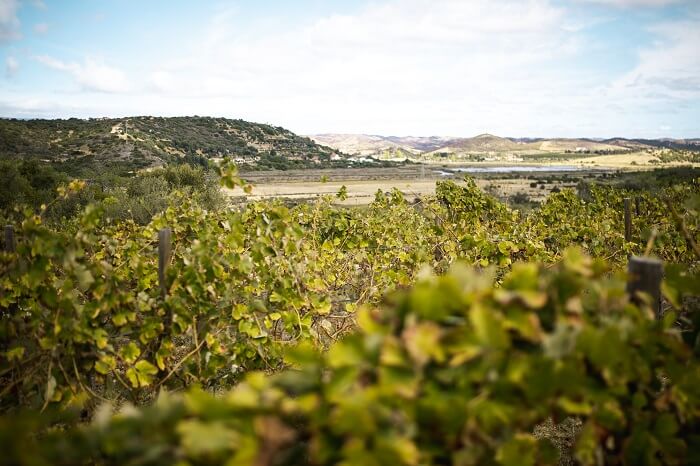
“The property was very beautiful,” recalls Pedro, who bought it to develop a tourism project associated with wine.
Just south of Silves, the property is set in a prime location, taking up an entire curve of the river, facing north and west. Pedro describes it as “a kind of Douro of the Algarve”.
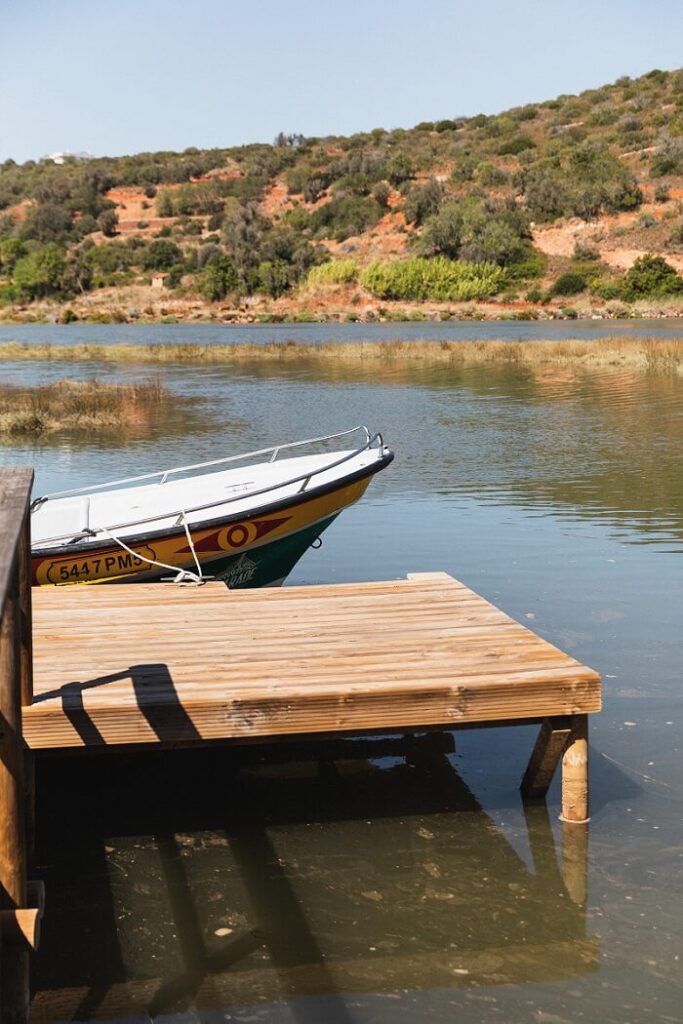
He gradually bought adjoining properties, building up to 54 hectares of protected agricultural land in the Arade estuary. And the plan is to grow. “Our objective is to reach 40 to 50 hectares of vines, which will make us one of the biggest producers in the Algarve,” he claims.
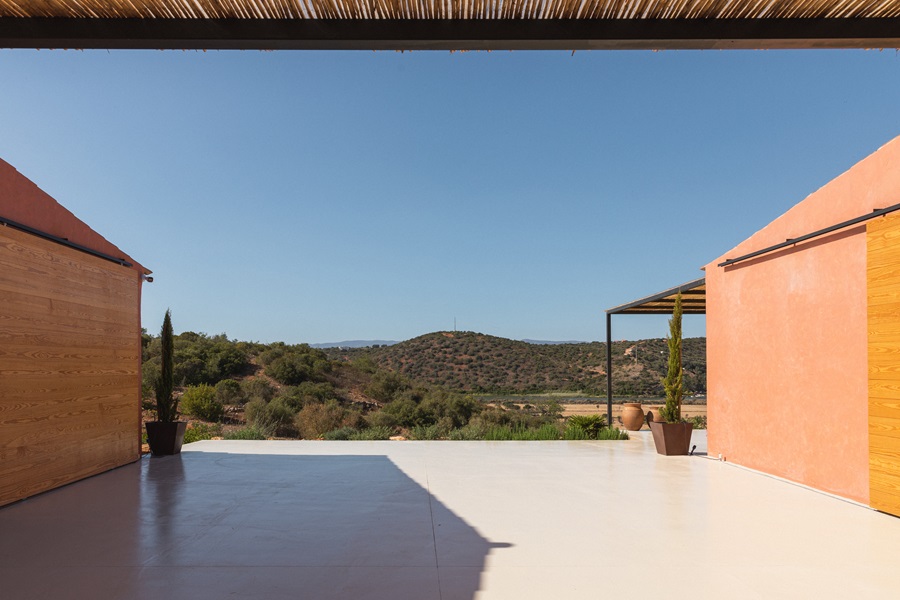
The project started in 2016 when he submitted a wine tourism project and planted nine hectares of vines. Three red grape varieties – Alicante, Touriga Nacional and Cabernet Sauvignon – and three white varieties – Arinto, Sauvignon Blanc and Alvarinho.
The whites were planted facing west to make the most of the Atlantic Ocean’s influence and Monchique’s mountain range, which funnels the Atlantic winds into the Ribeira de Odelouca valley, concentrating salinity and freshness.
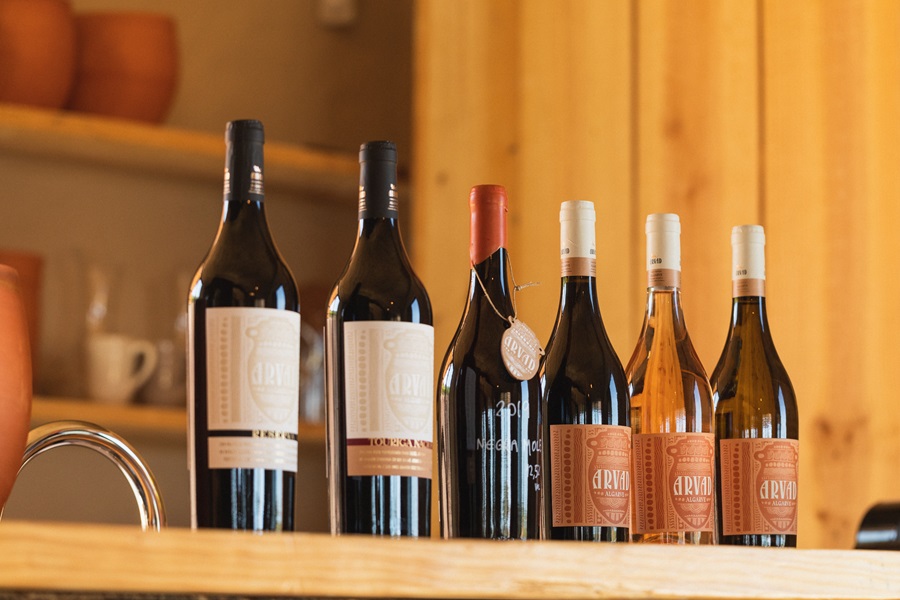
Cold air also descends from the top of Monchique, bringing added freshness, something difficult to achieve in the Algarve. “The fact that we are by the river also helps to avoid frost in the winter and extreme temperatures in the summer. We have an exceptional and favourable microclimate here,” admits winery manager Mariana Canelas.
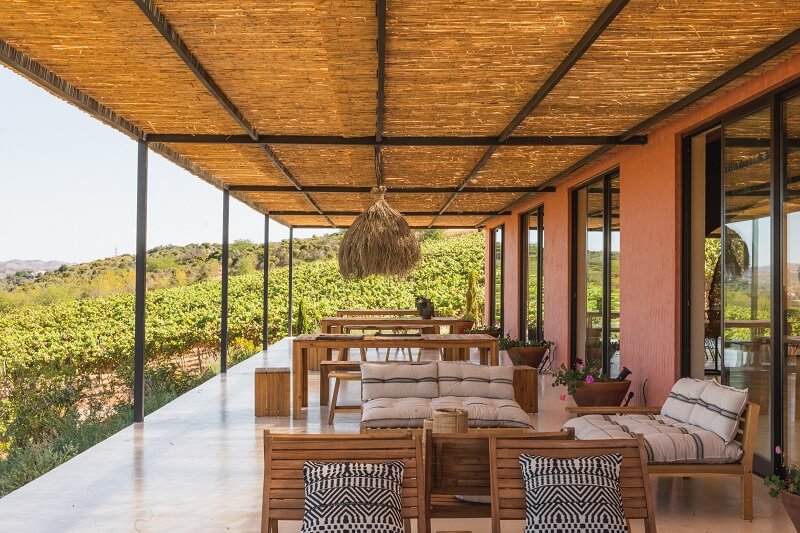
Overlooking the vineyard, mixing in discretely with their surroundings, the winery and its reception room were built on old ruins. The ochre-coloured buildings have rustic traits to which contemporary touches have been added, such as huge bay windows that bring in natural light and the breathtaking view.
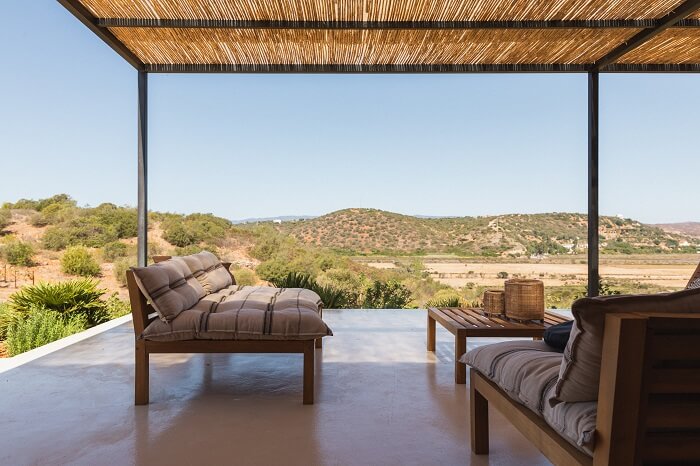
Outside, in a safari-style atmosphere, the large bamboo-covered terrace, with its swaying grass lampshade and wooden furniture, looks over the vast landscape: the red clay soil and the river at the origin of the winery’s name.
Curious about the history of his new property, Pedro hired a historian who spent three days in Lisbon’s National Archives reading about the area.
He discovered that Arade, the name of the river the winery overlooks, comes from the word Arvad, which means refuge in Phoenician. This is where this civilisation first set foot in Portugal and took shelter when they needed to escape from pirates on the coast. It is also where they first brought their winemaking techniques and amphorae.
With this information, reputed wine label designer Rita Rivotti created the Arvad labels. “We based the logo on the history of the location and the amphorae the Phoenicians brought wine in,” explains Mariana. “The amphora on our labels represents this heritage.” And now, with the 12 new Sicilian amphorae in the winery, they represent the future of Arvad’s winemaking.
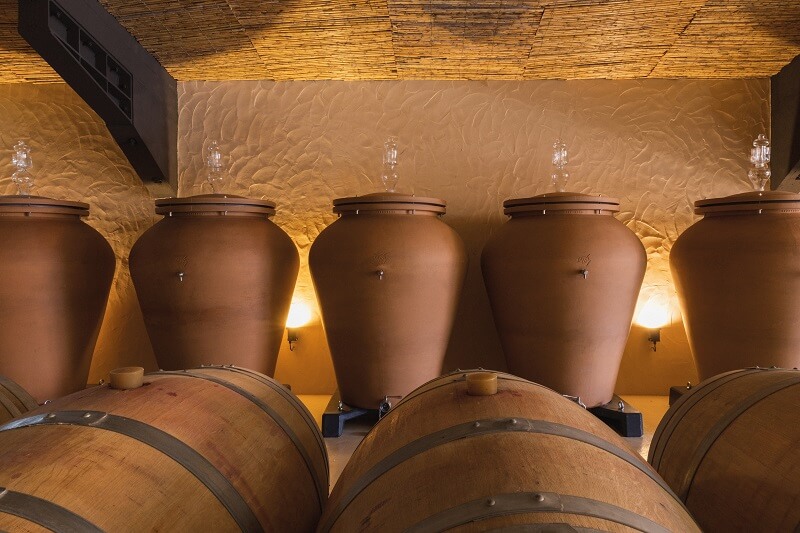
Made by renowned winemaker Bernardo Cabral, the Arvad wines are like sunshine in a bottle. They represent the soul of the Algarve, the joie de vivre visitors aspire to when they think of its glorious coast.
Arvad’s portfolio includes six references: a single varietal of Negra Mole and another of Touriga Nacional, two red blends (entry-level and Reserva), a white and a rosé.
The entry-level red (€9.50) is a blend of three grape varieties, partially aged in French oak barrels. A Bordeaux-style red blend in which the main variety is Cabernet Sauvignon. It is blended with Arvad’s unique Touriga Nacional, with notes of spices, black pepper, and light orange blossom on the nose, and Alicante Bouschet.
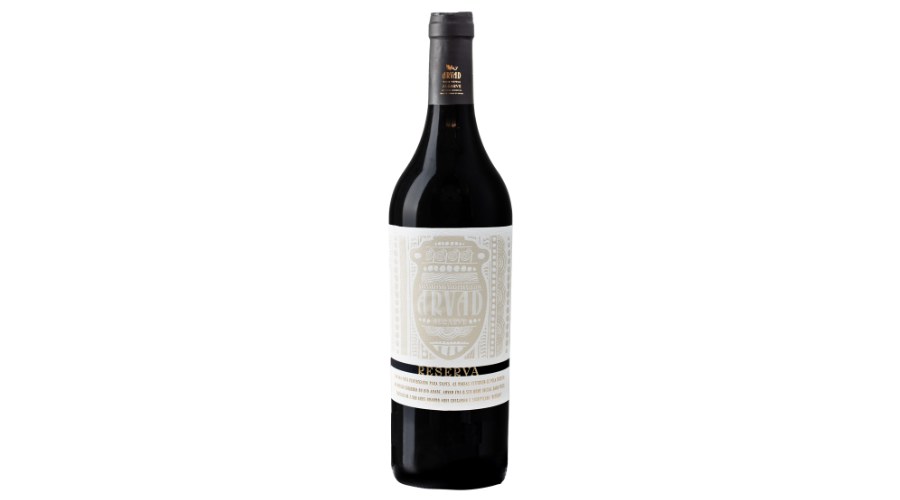
The Reserva (€32) is the same blend but more intense. Aged in oak barrels for six months, it is a wine with characteristics that will allow it to evolve much longer in the bottle.
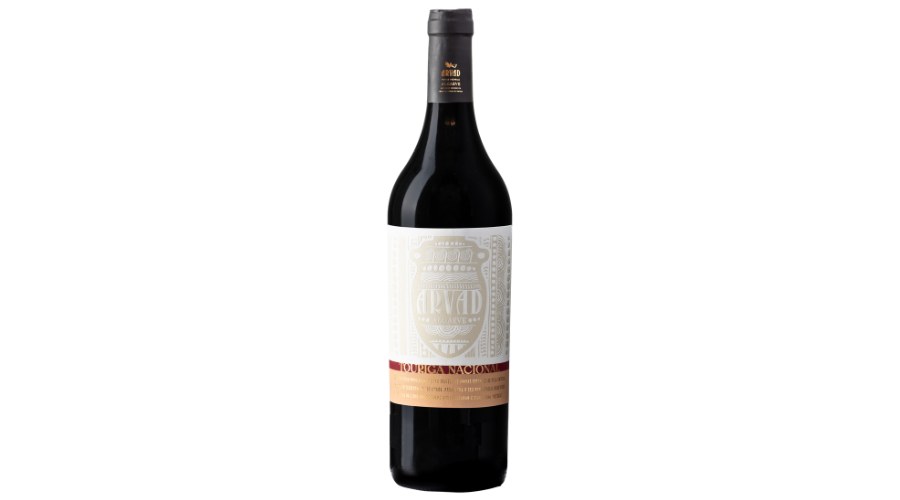
The award-winning Touriga Nacional (€25) received a gold medal at the European Wine City Competition, the only wine from the Algarve to win a gold medal, and another award for its label.
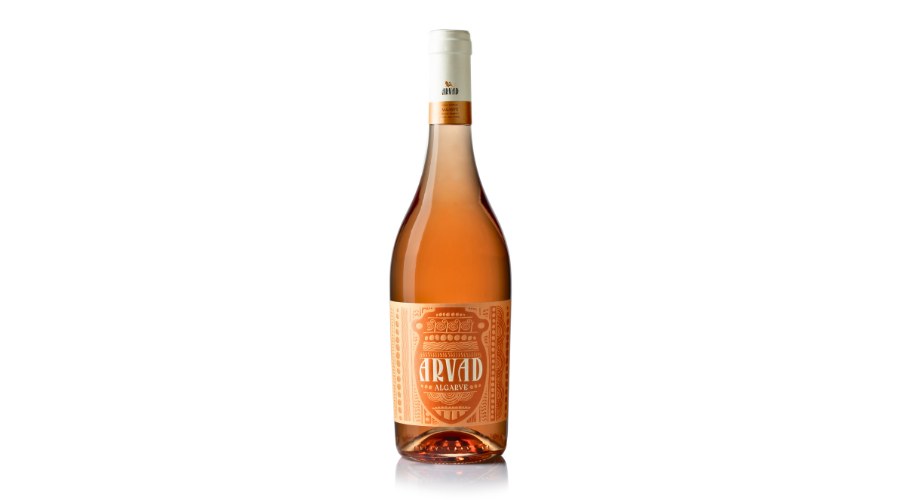
The Rosé (€9.50) is a blend of Touriga Nacional and Cabernet Sauvignon, and the white (€9.50) is a blend of Arinto, Sauvignon Blanc and Alvarinho.
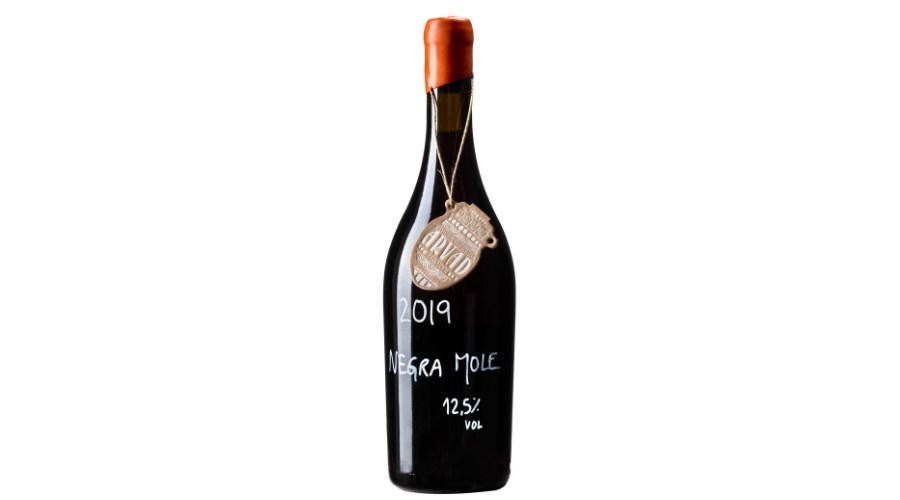
The 2021 Negra Mole (€15), aged in amphora to enhance its acidity, has an entirely different label. Mariana explains that they didn’t have a label for the Negra Mole when it was bottled, so she wrote on the bottles with a white pen to distinguish them from other wines, and winemaker Bernardo loved it.
“Negra Mole is something unique, the flagship grape of the Algarve. Sadly, over the years, many coastal vineyards were ripped up to build tourist developments, and many of those in the Barrocal were abandoned or replaced because the wine they produced was not very popular at the time,” says the winery manager.
But trends are changing as consumers increasingly look for wine with lower alcohol content. Mariana believes there is a recovery movement in Negra Mole: “Many old vines are being recovered and new ones are being planted, including at Arvad. It is the direction Algarve producers are taking.”
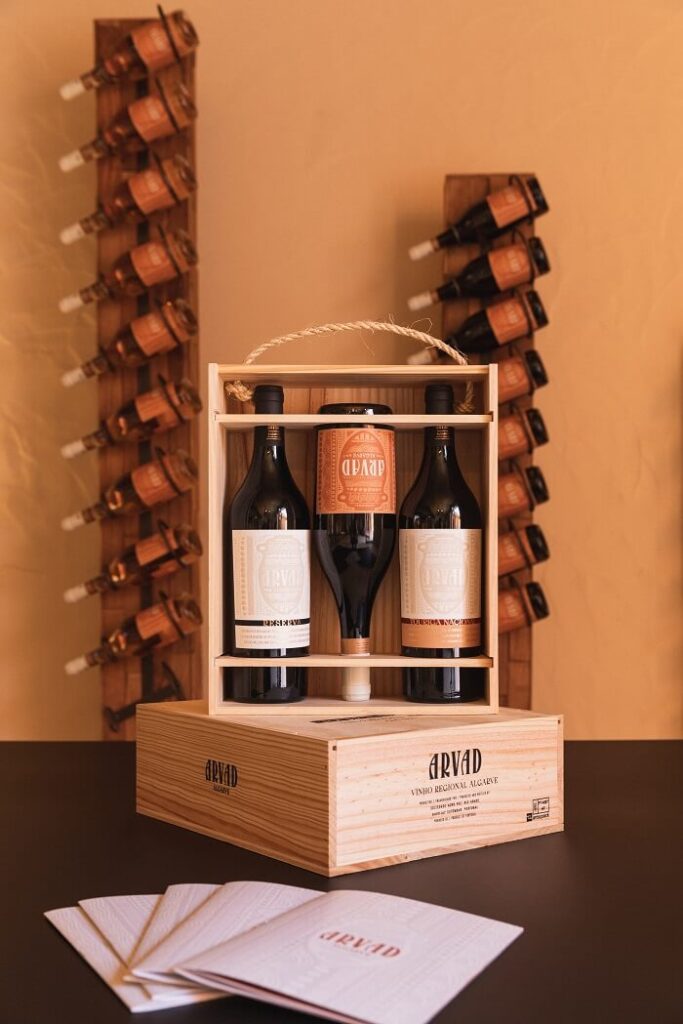
With a growing wine production and a boutique hotel in the pipeline, Arvad is an ambitious project with a sustainable soul. Pedro is focused on developing a different kind of winery, where, on top of the vines, he will plant aromatic herbs, build birdwatching towers and a luxury boutique hotel. Plans for the hotel include a spa and 30 rooms. Built on the hilltop, it will offer an incredible 360º view of the countryside and the river valley. A tourism project focused on wine, the river, and nature.
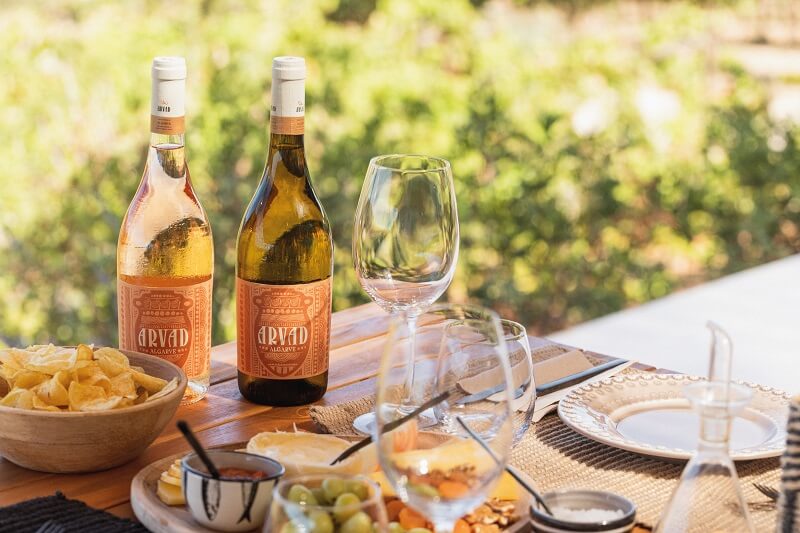
Other new projects include the recently launched Negra Mole rosé (1,500 bottles) and a sparkling wine, which is currently bottle ageing in the winery’s cellar.
Tastings at Arvad start at €20, with the three entry-level wines, and go up to €50 per person, including premium wines and an incredible spread of local petiscos and Alentejo cheeses.
“Customers who own a boat can come up the river and dock by our pontoon, where we pick them up in a buggy,” explains Mariana. If you don’t have a boat, you can come with one of the boat operators that leave from Portimão Marina, recreating the Phoenicians’ escapes up the river to this magnificent refuge.










